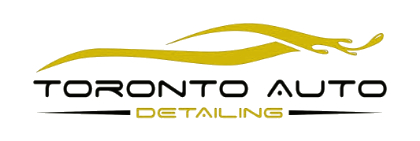Car Repair Prices in Toronto: What You Should Expect to Pay
Car repair costs in Toronto can vary significantly, leaving many vehicle owners unsure whether they’re paying a fair price for services. Factors such as the type of repair, the vehicle’s make and model, and the repair shop you choose all influence the final bill. For example, luxury or imported vehicles often require specialized parts and expertise, driving up costs compared to standard models. Similarly, labor rates differ between independent mechanics, franchise chains, and dealerships, creating a wide range of potential pricing.
Without a clear understanding of typical repair costs, it’s easy to feel uncertain or overcharged when faced with a bill. This is especially true for those unfamiliar with the mechanics behind car repairs, where minor services like oil changes might cost $50 at one shop but $120 at another. Larger repairs, such as transmission fixes or engine overhauls, can vary by thousands of dollars depending on the shop and the extent of the work.
This comprehensive guide aims to eliminate that uncertainty by providing detailed average costs for a broad range of common car repairs in Toronto, all expressed in Canadian dollars. From routine maintenance like brake pad replacements and oil changes to more complex issues like alternator failures and transmission repairs, this guide serves as a valuable resource to benchmark prices.
In addition to price estimates, we’ll delve into the key factors that influence repair costs. Understanding these variables—such as labor rates, shop reputation, and part availability—can help you make informed decisions. Furthermore, this guide offers practical tips for ensuring you’re charged fairly, from requesting multiple quotes to understanding warranty coverage.
Whether you’re budgeting for routine maintenance or preparing for unexpected breakdowns, this guide will equip you with the knowledge needed to navigate Toronto’s car repair market confidently and cost-effectively.

Average Car Repair Costs in Toronto
Here’s a detailed breakdown of average repair costs for common car issues in Toronto:
1. Brake Repair and Replacement
Brake repair typically involves replacing brake pads, rotors, or calipers. Here are the cost estimates:
- Brake Pad Replacement: $150–$300 per axle.
- Rotor Resurfacing or Replacement: $250–$500 per axle.
- Caliper Replacement: $350–$800 per caliper.
Factors like premium parts or sports vehicles can increase costs.
2. Battery Replacement
Replacing a car battery is straightforward but varies in price depending on the battery’s size and type:
- Standard Batteries: $100–$250.
- Premium or Hybrid Vehicle Batteries: $300–$3,000.
Labor fees typically add $30–$50.
3. Spark Plug Replacement
Spark plug replacements are routine maintenance, often paired with tune-ups:
- Cost: $80–$250, depending on the number of spark plugs and accessibility.
High-performance vehicles or engines with complex layouts may cost more.
4. Transmission Repair or Replacement
Transmission repairs are among the most expensive services:
- Minor Repairs: $500–$2,000.
- Full Transmission Replacement: $3,500–$8,000.
Costs depend on whether the transmission is automatic, manual, or CVT.
5. Windshield Wiper Blade Replacement
A simple but necessary service:
- Cost: $20–$50 for parts and $10–$20 for installation.
Luxury vehicle wipers may cost more.
6. Tire Replacement or Repair
Tires need replacement or patching for punctures:
- Tire Patch Repair: $25–$50.
- New Tires (Per Tire): $100–$400, depending on size and brand.
Balancing and alignment add $50–$150.
7. Oil Change
Oil changes are routine and essential for engine health:
- Conventional Oil: $50–$80.
- Synthetic Oil: $80–$130.
Luxury vehicles may incur higher costs due to premium oil or filters.
8. Alternator Replacement
The alternator is crucial for powering the car’s electrical systems:
- Cost: $400–$1,200.
Labor-intensive installations or luxury brands may exceed this range.
9. Suspension Repairs
Suspension repairs often involve shocks, struts, or control arms:
- Shock/Strut Replacement: $400–$1,000 per axle.
- Control Arm Replacement: $300–$800.
10. Engine Diagnostic and Repairs
Engine repairs range widely depending on the problem:
- Engine Diagnostics: $80–$150.
- Minor Repairs: $300–$1,500.
- Engine Replacement: $4,000–$10,000.
Average Hourly Labor Costs for Car Repairs in Toronto
Labor costs are a significant part of car repair expenses, and understanding the average hourly rates in Toronto can help you budget effectively. Whether you’re dealing with routine maintenance, tire repairs, or complex engine diagnostics, the labor rate varies based on the type of shop, the complexity of the job, and the level of expertise required.
General Hourly Car Mechanic Labor Rates in Toronto
In Toronto, the average hourly labor cost for car repairs ranges between $80 and $150 CAD, with variations depending on the type of repair shop:
- Independent Mechanics: Typically charge $80 to $100 CAD per hour, offering a balance of affordability and skill.
- Franchise Chains (e.g., Midas, Speedy Auto): Rates hover between $100 to $120 CAD per hour. These shops often provide standardized pricing but may upsell services.
- Dealerships: Labor costs range from $120 to $150 CAD per hour, reflecting their specialized training and access to proprietary parts and tools.
Factors Influencing Mechanic Labor Costs
- Repair Complexity: Simple services like oil changes or wiper blade replacements might incur only a fraction of an hour’s labor cost, whereas transmission repairs or engine diagnostics may require several hours.
- Vehicle Make and Model: Luxury or imported vehicles may demand higher labor rates due to specialized skills and equipment.
- Shop Location: Labor rates in downtown Toronto tend to be higher than those in suburban or rural areas due to higher operating costs.
- Certification and Expertise: Certified mechanics or shops specializing in certain car brands often charge premium rates.
Car Mechanic Inspection Costs
Before performing repairs, many shops charge a diagnostic or inspection fee. These fees typically range from $50 to $150 CAD, depending on the type of inspection:
- Basic Visual Inspection: Around $50 to $75 CAD.
- Advanced Diagnostics (using computer systems): Can cost $100 to $150 CAD or more, especially for high-end vehicles.
- Safety Inspections (e.g., for tire conditions or pre-sale checks): Range from $75 to $150 CAD depending on the shop and vehicle type.
Examples of Labor Times for Common Repairs
- Brake Pad Replacement: Usually takes 1 to 2 hours, costing $80 to $300 CAD in labor, depending on the shop.
- Tire Repairs or Replacements: Simple repairs take about 30 minutes to 1 hour, costing $40 to $100 CAD in labor, while tire mounting and balancing may add $50 to $100 CAD.
- Battery Replacement: A 30-minute to 1-hour job, with labor costs ranging from $40 to $120 CAD.
- Spark Plug Replacement: Takes 1 to 3 hours, with labor costs of $80 to $450 CAD, depending on how accessible the spark plugs are.
- Transmission Repairs: Complex and time-intensive, requiring 5 to 10+ hours of labor. Costs can range from $500 to $1,500 CAD in labor alone.
- Oil Changes: A quick service, typically taking 20-30 minutes, with labor costs ranging from $20 to $50 CAD.
- Alternator Replacement: Takes 2 to 4 hours, costing $160 to $600 CAD in labor.
- Engine Diagnostics: Generally a 1-2 hour process, with labor costs of $100 to $300 CAD, depending on the problem’s complexity.
How to Ensure Fair Labor Costs
Ask About Warranties: Higher labor costs may come with guarantees or warranties on repairs, offering peace of mind.
Request an Estimate: Always get a written estimate breaking down labor costs before agreeing to any work.
Compare Rates: Contact multiple repair shops to compare hourly labor rates and diagnostic fees.
Understand Flat Rates: Some services, like oil changes, may have flat-rate pricing, regardless of labor time.
Factors Influencing Car Repair Costs
Make and Model
The make and model of your vehicle play a significant role in determining repair costs. Luxury or imported cars, such as BMW, Audi, or Mercedes-Benz, often come with a premium price tag for parts and repairs. This is because these vehicles frequently require specialized tools, diagnostic equipment, and highly trained technicians familiar with their complex systems. Even routine maintenance on luxury vehicles can cost significantly more than on standard models. For instance, replacing brake pads on a Mercedes-Benz might cost upwards of $500, while the same repair on a Honda Civic could range between $150 and $300. Additionally, imported cars may need parts sourced from overseas, which can add shipping fees and delays to the repair process.
On the other hand, domestic or more common vehicles like Toyota, Ford, or Hyundai typically have a wider availability of parts and technicians, resulting in lower repair costs. Hybrid and electric vehicles also come with unique repair challenges, as their advanced technology often requires specialized knowledge, which can increase labor costs significantly.

Type of Shop
The type of repair shop you choose—whether it’s an independent mechanic, a franchise chain, or a dealership—directly impacts the cost. Independent repair shops usually offer lower rates because they have lower overhead expenses and often use aftermarket parts. These shops are ideal for general repairs and routine maintenance and can provide excellent service at a lower cost, especially if the mechanic has a good reputation.
Franchise chains, like Canadian Tire or Midas, tend to fall in the midrange of pricing. They often provide transparent pricing structures, but their service quality can vary depending on the location and the experience of the staff.
Dealerships, while typically the most expensive option, offer several advantages, especially for newer cars. They use OEM parts, have direct access to the manufacturer’s resources, and employ technicians specifically trained for your car’s brand. Dealerships also often provide better warranties on both parts and labor, offering peace of mind for complex repairs. However, for out-of-warranty vehicles, the premium charged at dealerships may not always be justified unless the repair is particularly intricate.
Parts Quality
The quality of parts used in a repair can dramatically affect the overall cost. OEM (Original Equipment Manufacturer) parts are made by the vehicle’s manufacturer and are designed to meet the exact specifications of your car. While OEM parts ensure the highest quality and perfect fit, they are often the most expensive option. For example, an OEM alternator for a Honda might cost $400, compared to $150–$250 for an aftermarket equivalent.
Aftermarket parts, produced by third-party manufacturers, are a more affordable alternative. Many of these parts meet or exceed OEM standards, though quality can vary. Refurbished or used parts can further reduce costs, particularly for older vehicles, but they may come with limited warranties and potentially shorter lifespans. When deciding on parts, consider factors like the vehicle’s age, the repair’s importance, and your long-term plans for the car.
Labor Costs
Labor costs are one of the most significant components of any car repair bill. In Toronto, hourly labor rates range from $80 to $150, influenced by the shop’s location, reputation, and the complexity of the job. Independent shops in suburban areas often charge on the lower end of this spectrum, while high-end dealerships or specialty shops in downtown Toronto can command rates closer to $150 per hour.
The skill level of the technician also plays a role. Certified or master technicians, especially those with expertise in luxury or hybrid vehicles, may charge higher rates. Additionally, labor-intensive repairs, such as engine rebuilds or transmission overhauls, will naturally incur higher costs due to the time and expertise required. For example, replacing a timing belt might take 3–5 hours, leading to labor charges alone ranging from $240 to $750, depending on the shop and vehicle.
Understanding the breakdown of labor costs and obtaining a detailed estimate can help ensure transparency. Many reputable shops in Toronto provide upfront pricing and explain how much time a repair will take, giving you confidence in the fairness of the charge.
Tips to Avoid Overpaying for Car Repairs
- Get Multiple Quotes: Comparing prices from different repair shops can save you hundreds of dollars.
- Ask for a Breakdown: Ensure quotes include parts, labor, and additional fees to avoid hidden charges.
- Research Reviews: Check online reviews for transparency and customer satisfaction before selecting a repair shop.
- Consider Warranties: Ask about warranties on parts and labor to protect your investment.
When to Consult a Professional
DIY car repairs can be a cost-effective solution for minor issues, allowing you to save on labor costs and the convenience of doing the work on your schedule. Tasks like wiper blade replacement, changing air filters, or even conducting an oil change are often straightforward, with detailed instructions readily available online or in the vehicle’s owner’s manual. These repairs typically require minimal tools and carry little risk if done incorrectly, making them ideal for car owners comfortable with basic mechanical tasks. For instance, replacing wiper blades might cost $20–$40 when done yourself, compared to $50–$80 at a repair shop.
However, when it comes to more complex or critical repairs—such as addressing engine problems, diagnosing electrical issues, or replacing a transmission—it’s essential to rely on professional technicians. Certified mechanics have undergone extensive training and possess the specialized tools necessary to diagnose and fix intricate problems accurately. Modern vehicles, especially hybrids and electric cars, are equipped with advanced systems requiring computer diagnostics and expertise that go beyond the scope of most DIY enthusiasts. Attempting to handle these issues without the proper knowledge or equipment can lead to costly mistakes, further damage, or even voided warranties.

Professional repair shops also have access to OEM and high-quality aftermarket parts, ensuring that replacements meet the vehicle manufacturer’s specifications. This is particularly important for safety-critical components like brakes, steering systems, and suspension. Certified technicians can provide warranties on both parts and labor, giving you peace of mind that the repair will last and meet industry standards.
Additionally, professionals are equipped to handle the unexpected challenges that often arise during repairs. For example, while replacing a water pump may seem straightforward, the surrounding components or timing belt may also need inspection or replacement. A professional mechanic will identify and address these issues proactively, preventing future breakdowns.
Ultimately, while DIY repairs are a great way to save money for simple maintenance tasks, major repairs should always be entrusted to certified professionals to ensure the job is done safely, effectively, and in compliance with industry standards.
Conclusion
Understanding car repair prices in Toronto is essential for making informed decisions and ensuring you aren’t overcharged for services. With so many repair shops offering different rates, it’s easy to feel uncertain about what a fair price looks like. Having a solid understanding of the typical costs for both routine maintenance and major repairs empowers you to compare quotes and spot any discrepancies in pricing. Whether it’s something as simple as an oil change or a more complex repair like a transmission fix, knowing what to expect helps you avoid unnecessary surprises and makes the repair process less stressful.
When faced with an issue, it’s important to take the time to seek estimates from multiple shops. This not only gives you a clearer picture of the going rate for your specific repair but also provides an opportunity to assess each shop’s professionalism, customer service, and reputation. Although the lowest price can be tempting, always consider the value you’re getting in terms of quality and transparency. A reputable shop should provide clear explanations of the repairs, the parts involved, and the labor required, allowing you to feel confident that you’re not being taken advantage of.
By staying informed about common car repair prices in Toronto, you’re in a better position to avoid unnecessary costs and make smart decisions about your vehicle’s care. Whether you’re dealing with a minor issue or a major repair, having a knowledge base of typical price ranges allows you to confidently navigate the repair process, ensuring your car gets the care it needs without exceeding your budget. This proactive approach can save you money, reduce stress, and ensure the longevity of your vehicle.
